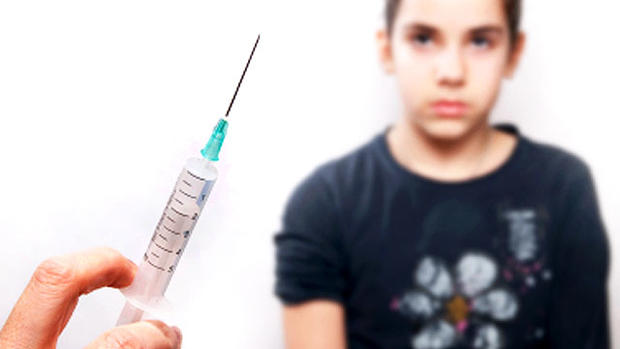HPV vaccine now recommended for all boys, CDC says
(CBS) The HPV vaccine should be given to all males between the ages of 11 and 21, says the Centers for Disease Control and Prevention.
PICTURES: HPV vaccine: 20 states that shun the shot
The CDC's Advisory Committee on Immunization Practices said in its 2012 recommendations, that the human papillomavirus vaccine should be "routine" for all boys aged 11 to 12 years old and it also recommends "catch-up" vaccinations for males ages 13 to 21.
Last October, the committee first recommended the vaccine for boys, HealthPop reported, but the recommendations weren't formalized until they were published this week, according to the CDC. The recommendations are published in the Feb. 1 issue of the Annals of Internal Medicine, and the Feb. 3 issue of Morbidity and Mortality Weekly Report.
The immunization committee is comprised of 16 other medical societies, including the American Academy of Pediatrics and the American College of Physicians.
CDC epidemiologist Dr. Eileen Dunne told the New York Times that the move came because new data over the past two years showed the vaccine was "very effective" in preventing genital warts in men and women, as well as some cancers.
At least 50 percent of sexually active men and women get infected with HPV at some point, but few develop symptoms or get sick, according to the CDC. Some infections lead to warts, cervical cancer and other cancers, including of the head and neck.
A recent study found that 16 million Americans between the ages of 14 to 69 have HPV in their mouths or throat, but most were found not to have the kind most strongly linked to cancer, according to HealthPop.
The HPV vaccine has been recommended for girls since 2006, but only 49 percent of adolescent girls have gotten at least one of the three HPV shots, according to recent estimates.
The new HPV vaccine recommendations were just two of the changes the CDC announced. Changes were also made to when mothers should receive the tetanus, diphtheria, and acellular pertussis (Tdap) booster that protects infants from pertusiss. According to the 2012 schedule, women should receive the vaccine during pregnancy, preferably after 20 weeks of gestation. Adult patients should continue to be vaccinated against influenza.


